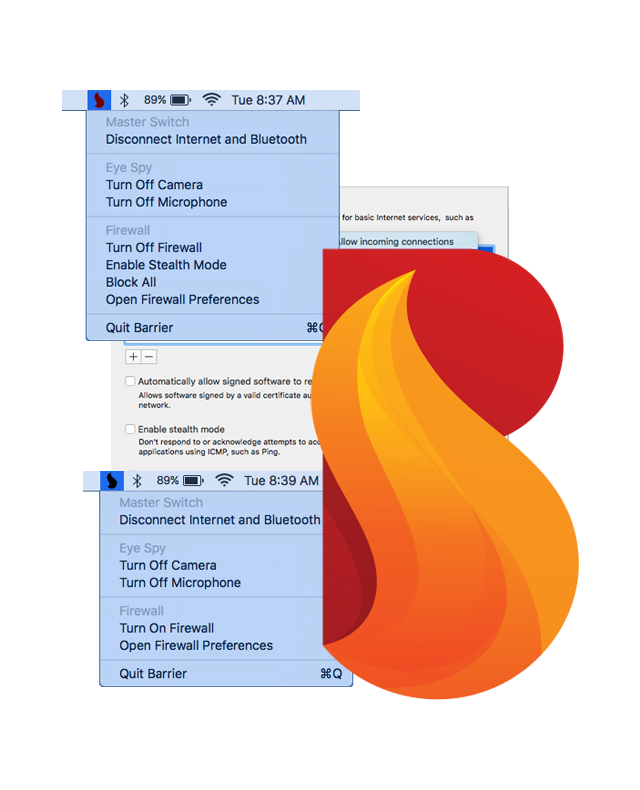


You can do so by using the -l option as follows (the output is pretty ugly and needs to be parsed better): usr/libexec/ApplicationFirewall/socketfilterfw -add /Applications/MyApp.app/Contents/MacOS/myapp Once signed, trust the application using the –add option: usr/libexec/ApplicationFirewall/socketfilterfw -v /Applications/MyApp.app/Contents/MacOS/myapp usr/libexec/ApplicationFirewall/socketfilterfw -s /Applications/MyApp.app/Contents/MacOS/myapp If you are enabling the firewall using a script, first sign your applications that need to allow sharing but are not in the TRUSTEDAPPS section by using the -s option along with the application binary (not the. There is also a list of TRUSTEDAPPS, which will initially be populated by Apple tools with sharing capabilities (e.g. This shows the number of exceptions, explicitly allowed apps and signed exceptions as well as process names and allowed app statuses. usr/libexec/ApplicationFirewall/socketfilterfw –getappblocked /Applications/MyApp.app/Contents/MacOS/myapp usr/libexec/ApplicationFirewall/socketfilterfw -listapps The –listapps option shows the status of each filtered application: usr/libexec/ApplicationFirewall/socketfilterfw -getallowsigned usr/libexec/ApplicationFirewall/socketfilterfw -setallowsigned on

Therefore, traffic can be allowed per signed binary. While it would be nice to think that that was going to be everything for everyone, it just so happens that some environments actually need to allow traffic. usr/libexec/ApplicationFirewall/socketfilterfw -setglobalstate on usr/libexec/ApplicationFirewall/socketfilterfw -setloggingopt: detail For example, if you need to troubleshoot some issues, you might set the logging to detail using the following command: You can also control the verbosity of logs, using throttled, brief or detail. usr/libexec/ApplicationFirewall/socketfilterfw -setloggingmode on usr/libexec/ApplicationFirewall/socketfilterfw -getstealthmode usr/libexec/ApplicationFirewall/socketfilterfw -setstealthmode on

The output would be as follows, if successful:įirewall is set to block all non-essential incoming connectionsĪ couple of global options that can be set. usr/libexec/ApplicationFirewall/socketfilterfw -getblockall usr/libexec/ApplicationFirewall/socketfilterfw -setblockall on To configure the firewall to block all incoming traffic: In /usr/libexec/ApplicationFirewall is the Firewall command, the binary of the actual application layer firewall and socketfilterfw, which configures the firewall.


 0 kommentar(er)
0 kommentar(er)
